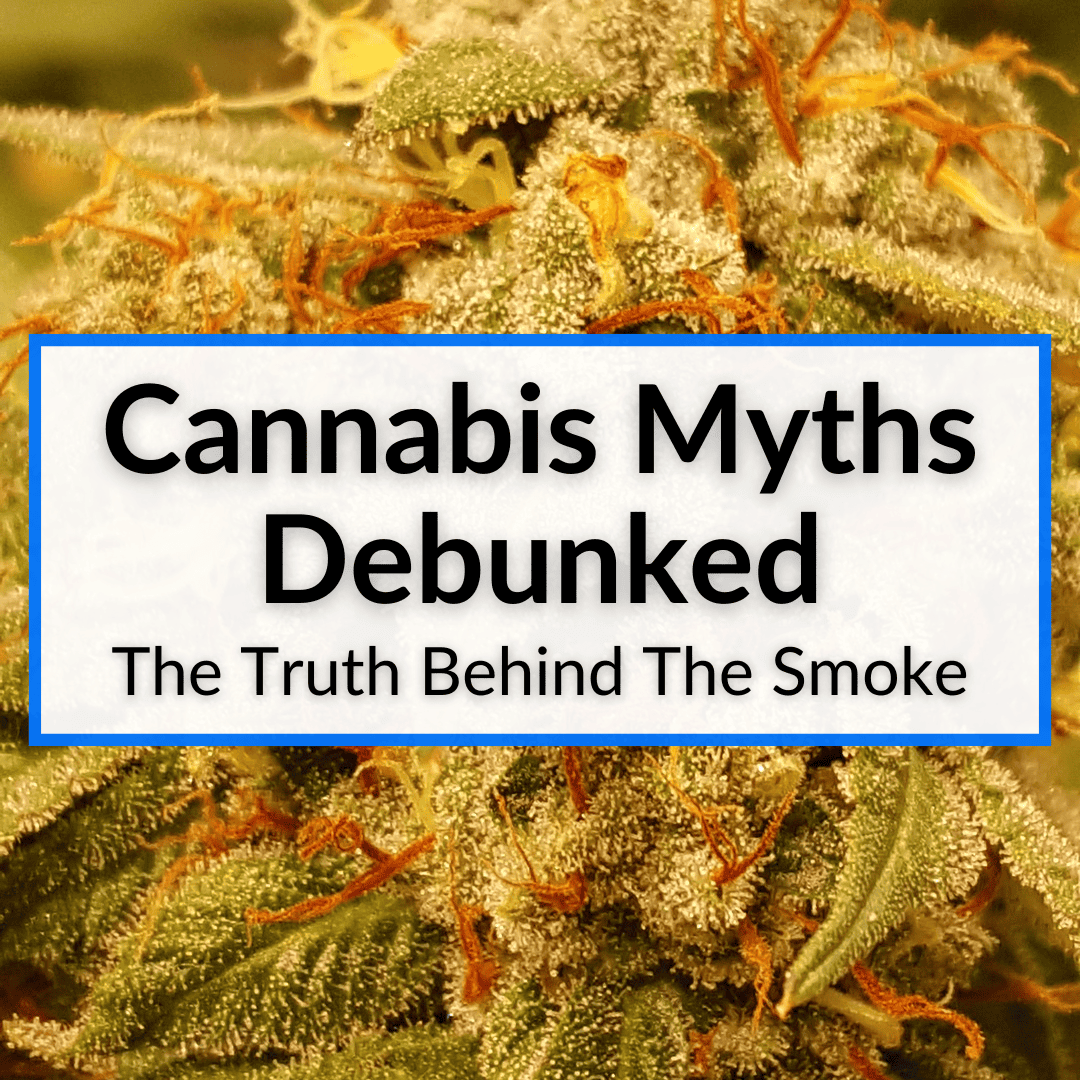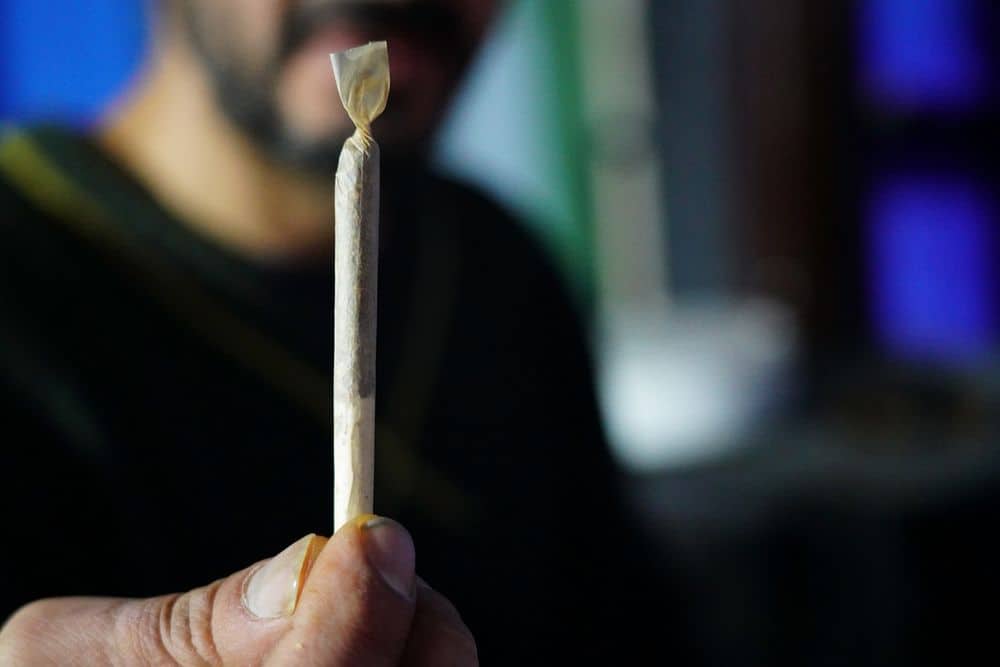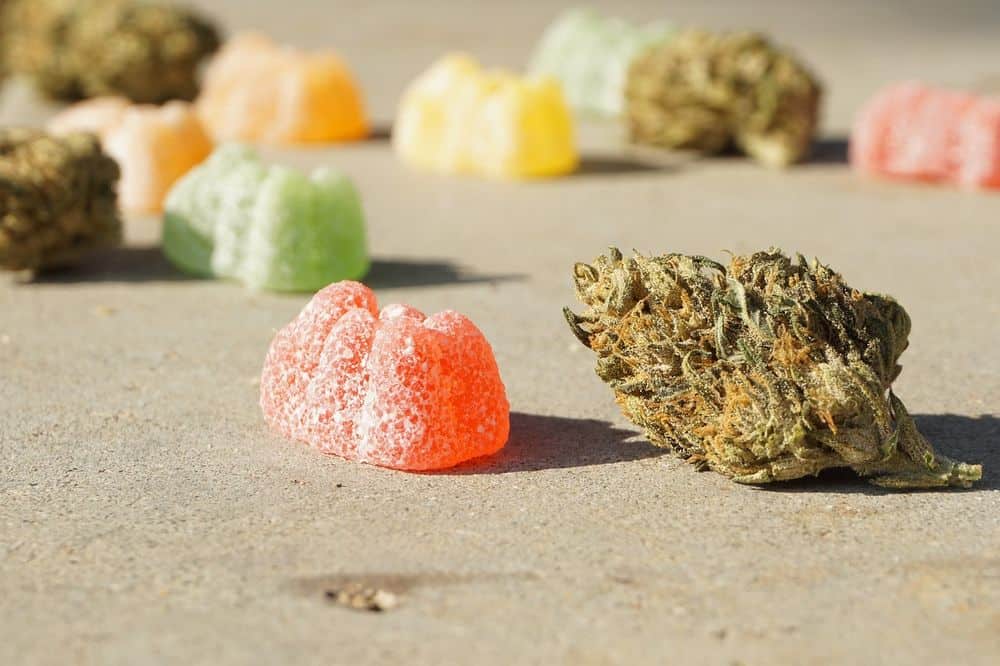 Some cannabis myths are incredibly stupid.
Some cannabis myths are incredibly stupid.
You won’t find any of those cannabis myths debunked here today.
I may do an entire article on the most ridiculous cannabis myths in the future.
But for now, we’re going to look at some of the more believable myths.
Because they are more believable, they can easily mislead.
That’s why we are going to debunk these cannabis myths below. To make sure you know what is true and what is not.
Contents
- 1 Myths About Weed Debunked
- 1.1 Myth 1: ‘420’ Is The Number Of Chemicals In The Cannabis Plant
- 1.2 Myth 2: The Song Purple Haze By Jimi Hendrix Is About Weed
- 1.3 Myth 3: Pregnant Women Can Safely Use Medical Marijuana
- 1.4 Myth 4: Marijuana Is Not Addictive
- 1.5 Myth 5: Cannabis Helps You Fight Depression
- 1.6 Myth 6: Edibles Are Always Safe
- 1.7 Myth 7: Some Forms Of Marijuana Are OK In My State, Which Means It Is Completely Legal Too
- 1.8 Myth 8: Marijuana Is A Natural Herb So It Cannot Have Health Risks
- 1.9 Myth 9: Cannabis Use Can Cause Lung Cancer
- 1.10 Myth 10: It Is OK To Drive After Smoking Cannabis
- 2 Cannabis Myths Debunked: Final Thoughts
Myths About Weed Debunked
As mentioned, all of the following cannabis myths are ones that are fairly easy to believe. And many do believe them. That is why I wanteds to write this article: to clear up any possible confusion or misinformation.
Myth 1: ‘420’ Is The Number Of Chemicals In The Cannabis Plant

Many urban legends are floating around the association between pot and the number 420. Some believe it is the number of chemicals in the marijuana plant. That is not true. The number of chemicals changes depending on the plant and can be anywhere between 300 and 400.
Some people believe it is the police code for pot. That isn’t true either. There is no 420 police code.
A group of weed smokers from California’s San Rafael High School coined the term way back in 1971. The kids used the number 420 to alert their friends that it was time to get high. Soon, it became a common term linked to smoking pot.
Myth 2: The Song Purple Haze By Jimi Hendrix Is About Weed
Purple Haze is a marijuana strain. But Jimi Hendrix clarified that his song Purple Haze was not about weed, or any drug for that matter. He based this song on a strange dream he had in which he was walking under the sea, surrounded by a purple mist.
The weed named Purple Haze does have a purplish tint to its hair and leaves, which is why it was given the name in the first place. And of course, just like Hendrix, it does leave some smokers feeling as if they are indeed walking under the sea, surrounded by a purple haze!
Myth 3: Pregnant Women Can Safely Use Medical Marijuana
Marijuana, including the medicinal varieties, could harm the fetus. The exact implications of smoking weed during pregnancy and lactation are not known and they could also vary based on individual tolerances.
However, the CDC, NIDA, and the American College of Obstetricians and Gynecologists all recommend that women stop taking medicinal marijuana at least 3 months before trying to conceive.
Myth 4: Marijuana Is Not Addictive

This is a myth because people can get addicted to weed. According to the CDC, three out of 10 people who smoke weed have a cannabis use disorder (CUD), and nearly 10% of users get addicted to it. You chances of getting addicted to weed also go up to 1 in 6 if you began smoking it before the age of 18.
If you have a strong craving to use weed every day, have tried to quit it before but couldn’t, and develop anxiety, crankiness, or sleeplessness when you don’t use it, then chances are you are addicted to weed.
As an alternative, you could smoke CBD vapes instead of marijuana. Research shows that CBD does not have the same abuse potential as THC. But it doesn’t get you high either.
Myth 5: Cannabis Helps You Fight Depression
Marijuana can help you feel good in the moment, but that feel-good moment can play tricks. When someone abuses marijuana, he or she may use it as a smokescreen to hide their profound grief and pain. These symptoms can become obvious later.
Studies have shown cannabis use, especially in teenagers, can lead to depression in adult life. Daily, heavy cannabis users are two to four times more likely to develop depression than non-users.
Significant use of THC is known to reduce serotonin activity in the brain, which, in turn, has been associated with a risk of depression.
Myth 6: Edibles Are Always Safe

This is one of the biggest marijuana myths. Edibles like cookies, gummies, lollipops, and brownies are popular, but their exact THC potency may not be clear. They also take longer to digest and longer to produce a high, so people tend to consume more. This can result in a harmful reaction.
Take this case of a 23-year-old who consumed a small piece of marijuana cookie as directed by the salesperson. Approximately 30 to 60 minutes later, he did not feel any high, so he consumed the rest of the cookie.
Two hours after that, he began to display erratic behavior and hostile speech. Approximately 4 hours after the initial ingestion, he jumped off the fourth-floor balcony and died as a result of the trauma.
Myth 7: Some Forms Of Marijuana Are OK In My State, Which Means It Is Completely Legal Too
Although some states have legalized marijuana, there are heavy regulations about its use. These rules and regulations also vary from state to state.
The Biden Administration is planning to reclassify marijuana as a Schedule III drug. While this will open up marijuana for medical research and its benefits, it is still federally illegal to use marijuana for recreational purposes.
Myth 8: Marijuana Is A Natural Herb So It Cannot Have Health Risks
Natural does not necessarily mean it is safe. Think poison ivy. Or any number of tosic plants.
Like with everything else, smoking weed in excess can result in ill effects. Anxiety and paranoia are some of the most common side effects of smoking weed for most people
Understand that, despite being all-natural, marijuana has short-term and long-term risks. So do your research, learn all that you can about it, and only then go ahead and burn, use, or eat it.
Myth 9: Cannabis Use Can Cause Lung Cancer
This one is not proven since more studies are needed to ascertain this fact. Even the NIDA (National Institute on Drug Abuse) states that the link between lung cancer and marijuana use remains an open question.
It is true that a few uncontrolled scientific studies have established a link between respiratory cancer and smoking marijuana. On the other hand, some well-designed population studies have been inconclusive and failed to establish a link between lung cancer and smoking weed.
Myth 10: It Is OK To Drive After Smoking Cannabis

This is a strict no-no. People who smoke weed and get behind the wheel could experience dangerous effects. Weed is known to impair judgment and its effects can vary based on individual tolerances.
These effects may include slower reactions, lane weaving, and decreased coordination, all of which can result in accidents. A Boston University study shows that the number of crash deaths involving cannabis has gone up 9% from 2000 to 2018.
Cannabis Myths Debunked: Final Thoughts
Had you heard any of the myths before? Did you believe any of them? If so, don’t feel bad. These are all fairly common myths that many people believe, because they sound believable and are often repeated.
Do you know of any other myths surrounding marijuana that are not true? Or ones you are not sure are true? If so, I’d love to hear them! Feel free to let me know in a comment below.
Leave a Reply